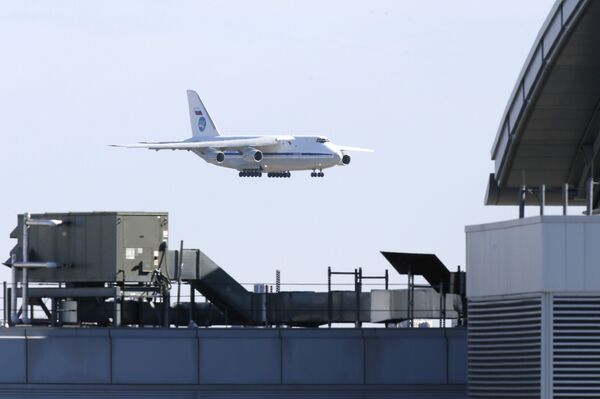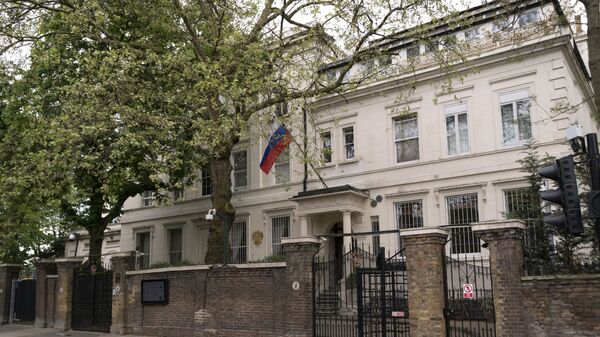“British media continue publications seeking to find discrepancies and hidden agenda of Russian humanitarian assistance rendered to the United States and Italy in order to help them combat the coronavirus pandemic", the embassy said in a statement. Russia's assistance was a demonstration of "civilized humanitarian cooperation and mutual help, the best manifestation of the universal values that humanity has been accumulating for centuries", it went on to say. "One would hope that freedom of expression and the media, another important achievement of modern civilisation, should be used in order to disseminate true information in good faith”, the embassy added.
.@BBCNews reveals new lows of Russian disinformation: grateful Italians don’t sing the Russian anthem, but play its recordings! (Meanwhile, Russian military doctors are disinfecting 65 Italian care homes for the elderly, but does it really matter?)https://t.co/nCh5HmijBA #COVID19 pic.twitter.com/RPhgfZIFz0
— Russian Embassy, UK (@RussianEmbassy) April 3, 2020
The mission recalled that Russian teams were helping Italy disinfect 65 nursing homes for the elderly. By 1 April, this work had already been finished at 17 sites.
"We would like to stress that this help is free of charge and humanitarian by nature. It is a sign of our solidarity with the Italian people, not linked to any political agenda", the embassy said.
Even though part of the relief cargo, delivered by Russia to the United States, was paid by the latter, it “hardly makes it less humanitarian”, the mission noted.

Last week, Jacopo Iacoboni, a journalist with La Stampa, alleged in an article that the agreement between Russia and Italy on humanitarian aid could have been geopolitical in nature, with Italian Prime Minister Giuseppe Conte agreeing to accept the assistance in order to strengthen personal and political relations with Moscow, and Russian President Vladimir Putin using this opportunity to play a role in the situation in Italy.
Other Western media, including the UK's The Guardian and the Telegraph, voiced similar speculations. In response, Kremlin spokesman Dmitry Peskov has said that the Russophobic obsession in the West continues even in times of a pandemic.
Since March, the Russian military has sent 15 aircraft and dozens of specialists to Italy, the European nation most affected by COVID-19, along with disinfection and diagnostic equipment. Conte thanked Putin for the medical supplies in a telephone conversation on 21 March, and the Italian foreign minister personally came to meet the aircraft and express gratitude to Russia.


